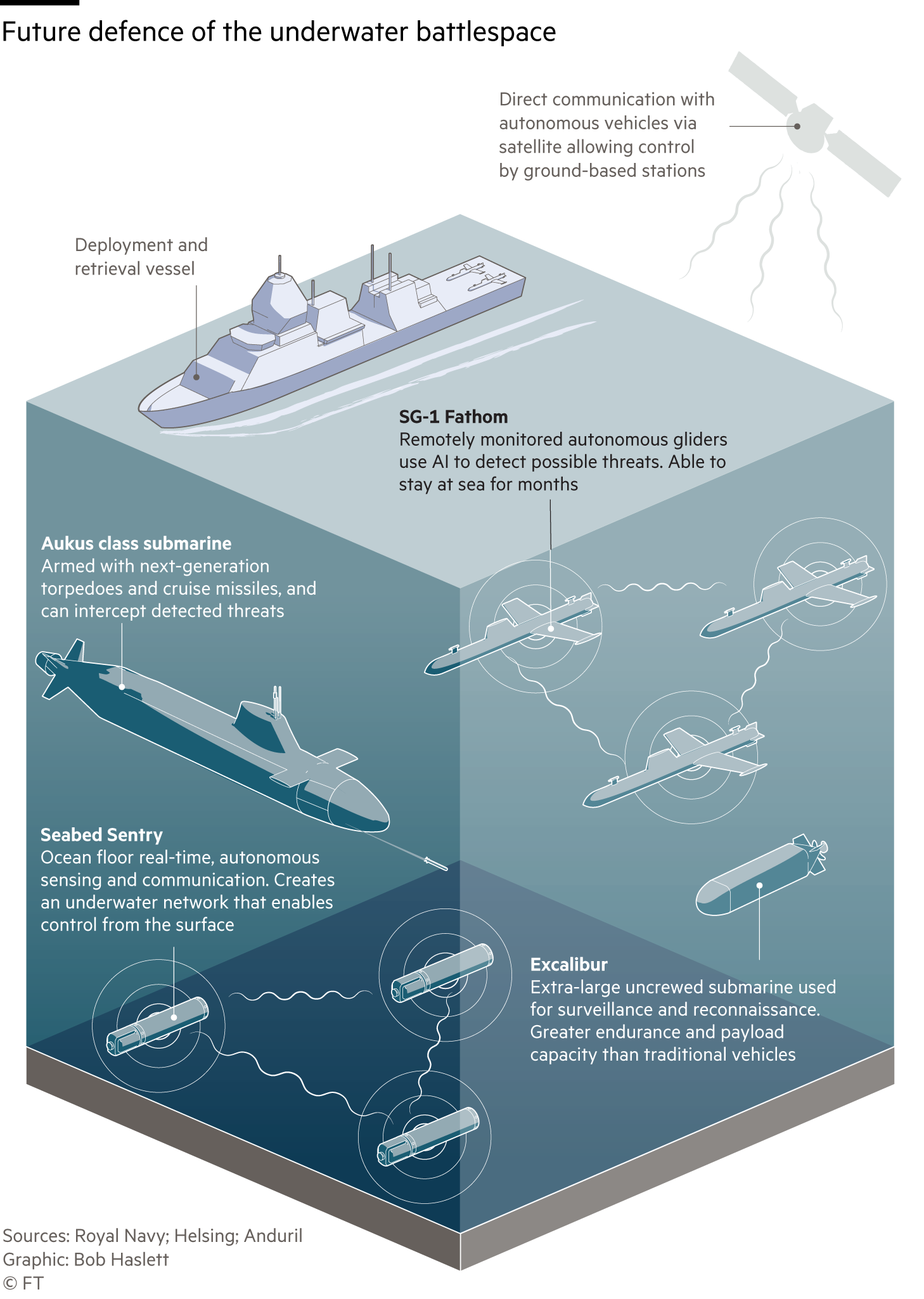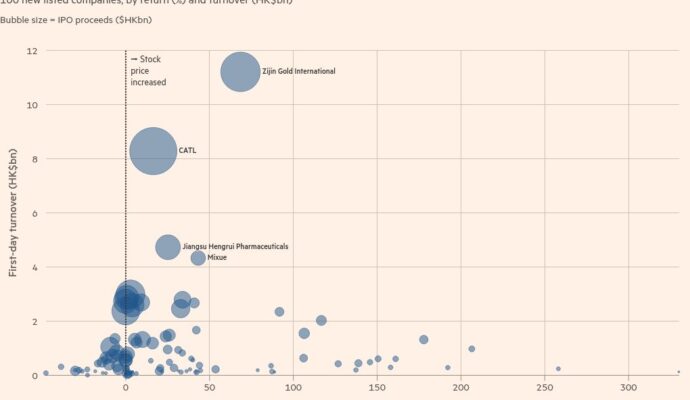Good morning. US President Donald Trump has threatened tariffs and export controls on countries whose taxes or regulations “discriminate” against US tech companies, in an outburst that will give EU officials pause for thought this morning.
“As the President of the United States, I will stand up to Countries that attack our incredible American Tech Companies,” he said a few hours ago. Brussels, which Washington has accused of targeting US tech, only last week unveiled a deal with Trump to reach a truce in a transatlantic trade war.
Today, Korea’s nuclear industry tells our Brussels and Paris correspondents that France is breaking the EU’s state aid rules, and our Berlin correspondent reports on a tense German ministerial visit to Israel.
Home advantage
Is the state-owned French energy giant EDF misusing EU rules to boot out foreign competition? South Korea’s nuclear industry thinks so, write Alice Hancock and Ian Johnston.
Context: The Korean state nuclear company KHNP won an $18bn contract to build a nuclear plant in the Czech Republic, but construction was temporarily halted in May after an eleventh-hour intervention by EDF that led to a challenge in the courts.
While construction at the Dukovany plant is now going ahead, EDF’s intervention led the European Commission to open a foreign subsidies investigation into the Korean company. EDF stated that KHNP would not have been able to guarantee such a low price for the project without “illegal state aid given the prices in the nuclear industry”.
The Korean nuclear trade association KAIF has now hit back at the accusations.
“We are concerned that foreign-subsidy regulation rules are being misused by EDF, especially in light of its own history of receiving generous subsidies and state aid in multiple jurisdictions,” KAIF told the Financial Times.
“Not only does this have serious negative implications for the EU’s ambition to advance its energy security, but it also risks the credibility of the FSR instrument as a whole,” KAIF added.
The statements come as the commission reviews how it uses rules on foreign subsidies, which allow the EU executive to investigate subsidies that could give an unfair market advantage to foreign companies.
KHNP has indicated that, should the commission launch a full probe into the company with a provisional ban on construction at Dukovany, it would challenge Brussels in the EU courts.
EDF declined to comment.
As a French state-owned company, EDF is not subject to the EU’s foreign subsidies regulation. It has received multibillion loans and grants from the British and French governments, although officials argue that these have been allowed under EU state-aid rules. It also receives significant subsidies in countries such as Brazil, the US, Vietnam and Chile.
In March this year, the French government committed to cover half the construction costs of six new EDF reactors via a subsidised loan expected to exceed €30bn, and which still needs to be approved by the European Commission.
Chart du jour: Deep water

Disruption to gas pipelines and telecoms cables have focused policymakers’ minds on protecting submarine assets — and led defence companies to expect a multibillion-dollar surge in spending to shield the seabed.
Field trip
Germany’s development minister Reem Alabali Radovan left yesterday evening for a three-day visit to Israel and Palestine at a time of unprecedented strain in their diplomatic relationship, writes Laura Pitel.
Context: Growing public pressure over the humanitarian situation in Gaza led conservative Chancellor Friedrich Merz to announce a partial arms embargo on Israel earlier this month. That decision, a big shift from a leader who has been Israel’s staunch supporter, has caused deep tension between the two countries.
Alabali Radovan, a Social Democrat, has emerged as one of the most vocal critics of Israel in the new German government that took office in May.
Last month, she expressed disappointment that Berlin had not signed a joint declaration by more than two dozen nations — including the UK, France and Australia — that condemned the “drip feeding of aid and the inhumane killing of civilians” amid Israel’s attack on Gaza.
Speaking before her departure yesterday, which came hours after 20 people including five journalists were killed in an Israeli strike on a hospital in Gaza, she said that the Israeli government had allowed more aid to enter the enclave but that it was “far from enough”.
During her visit, she will hold meetings with officials from the Palestinian Authority in the West Bank and also travel to Jordan and Saudi Arabia, with a focus on improving the supply of aid to Gaza and making plans for the strip’s reconstruction. She is also due to see the families of Israelis who were taken hostage during the October 7 2023 attacks.
However, at lunchtime yesterday she had still not received confirmation of any of her requested meetings with Israeli officials, in a further sign of the limited influence of Germany and other western nations as Israeli premier Benjamin Netanyahu prepares for a new offensive against Gaza City.
What to watch today
Prime Ministers Mark Carney of Canada and Bart De Wever of Belgium separately visit Germany’s Chancellor Friedrich Merz in Berlin.
Now read these
Refilling the swamp: Germany’s “peatland pope” believes bogs can help defend Europe against both Russian expansionism and man-made climate change.
Danish-US relations: From Greenland to Ørsted, US pressure is unsettling Denmark, as the White House oscillates between friend and foe.
Too hot to think: Governments are rolling out million-dollar programmes to tackle extreme heat in schools, as hot weather forces closures.
Are you enjoying Europe Express? Sign up here to have it delivered straight to your inbox every workday at 7am CET and on Saturdays at noon CET. Do tell us what you think, we love to hear from you: europe.express@ft.com. Keep up with the latest European stories @FT Europe

